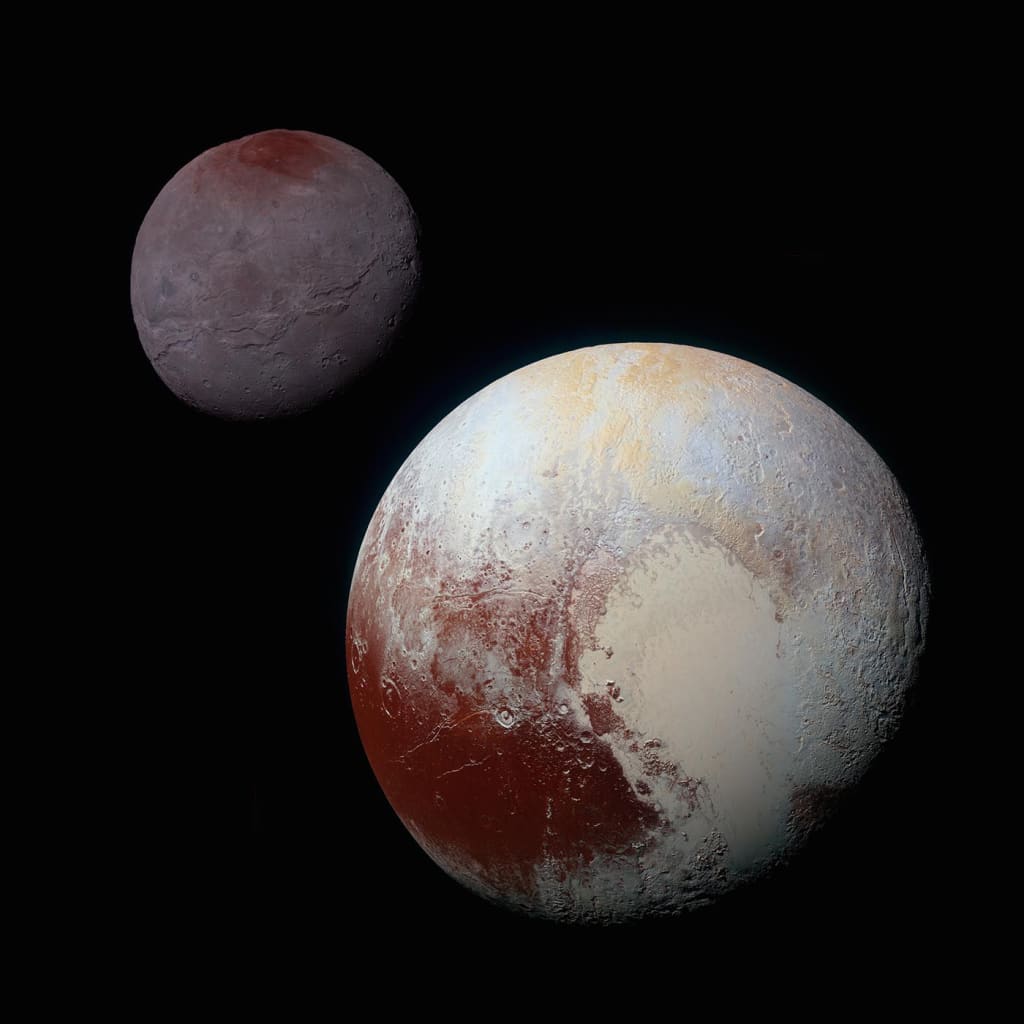
Two hundred years for a 400 million kilometre closeness across the vacuum of space, when Neptune’s energy field would be close enough to reach Pluto’s aura in lowering ellipse, thus allowing a proper astral touch.
Signals across the empty then coming through clear, and tactile. Twenty years it would last, time perception slowed by them both with an effort befitting their long established bond. The conversation to continue a fade in their divergence, but it was no substitute for their nexus, regardless how brief it was.
The business of Earth never intruded in happenings of the solar system until recently. Radio waves now reached the far sides of the system and told of terrible projections to be extrapolated from. And Earth, embarrassed, but dutiful, did most of the translating, and the planetary committee soon recognised the threat to harmony they all faced.
The future was human, they saw. Earth already in decay, and it would be Mars next, infection spread there in some kind of Musk, then the moons of Jupiter, and, one after another, them all. The deep resources that constituted their lifeforces, destined inexorably for depletion.
A future that now projected itself retroactively in the present. A species of sapiens in growing enterprises which had become their tiny gods. Submission, it turned out, was a phenomenon as universal across all matter as consciousness was.
The concept of nomenclature was difficult to grasp, at first. Earth had taken the initiative of broadcasting humanity’s scientific advents with routine immediacy, and it was with a great interest that the planets received their designated names and categorisations. Their engagement grew from that point exponentially with television, with its visual and auditory realities in a mesmerising flux, timescales forced relative to ephemeral lifespans, its potent breadth of emotion most of all. A culture of thought that imposed an osmosis on them all save Jupiter, whose gargantuan gaseous mass, ever stoic, allowed for a chosen stubbornness to the provocations of curiosity.
Resonances they all felt and identified themselves with suddenly had concept, and category. Names given to the constituents of a reality hitherto existed without the remotest abstraction. Each bonded organically in accordance with the feeling: anger for the powerlessness of action; sadness for the loss seen in great distance; hope in the chance intersection of fortune. And giving pulse to all these, and to every emotion, was love; that which bonded two bodies across time and space and the constructs of a so-called physics no matter its limitation.
When again their two paths met, Neptune and Pluto became caught in reflections, meanings, impressions of themselves neither could have imagined. The name of their bond that was love gave their communication the quality of an inward compounding, the promotion of love’s growth through the emboldened retelling of its feeling. Memories visceral like present experiences, dreams that gave solidity to past moments otherwise amorphous for the next.
A vicissitude was thus born between happiness and loss, how they felt together, and apart. Yet it was the former that defined them the most. Love’s promise permeated well the vastness, relegating touch’s loss distant, and faint.
The emotional realm was but one of humanity’s gifts, however. More sinister came the concepts of standards, opinions, judgement. Facets of societies which beset a living human’s failures, their fears and insecurities. The apparent inadequacies of Pluto’s relatively minuscule size then made salient in the shadow of a radiant sun, an intimidating Jupiter. The tender and reassuring caress of Neptune did little to assuage her beloved before their next separation, and it was with a crestfallen heart that Pluto drifted away, cold, lonely, the trail of Neptune’s voice soon relenting, letting him go, for now. Emotion’s recognition, she knew, would be crippling, but she never gave up hope. She loved her dwarf planet to her very core. The insecurity of his mass, of the relinquishment of his planetary designation, it would pass. And so she waited, happy in her optimism of the inevitable, the next centuries to pass warm in their eventuality, of seeing him again, feeling him again, of that long dream of two hearts that would be melded once again in aethers outside space and time.
About the Creator
Garry Morris
Studying writer & musician.






Comments (1)
Exquisite prose, Garry displays here the potential to be the next Gene Wolfe, magnificent writing.